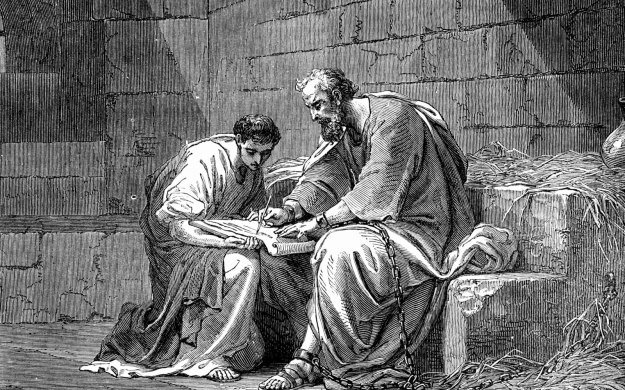Never said it was. I said Christianity has its roots in Judaism--and it does.
Once again, you have Paul all wrong. You know so little about him that you do not even know that he never--not once--mentioned Mary or Jesus' birth.
[Pick and choose whatever you wish to believe in and keep believing it. It will not change a thing as to who founded Christianity and why, and the consequences of it.]
Some argue that since what may be arguably the greatest evangelist and apologist of the Christian faith didn’t write about the virgin birth of Jesus that either he did not believe it or that he did not know about it. And that he was so knowledgeable it’s highly improbable that the latter is true. So, did Paul just not believe that Mary, the mother of Jesus, conceived Him as a virgin?
One thing we must remember is that just because he didn’t mention it doesn’t mean that he didn’t believe it. That’s like the common argument that since Scripture doesnt speak of Jesus preaching against x, then He must not have considered x a sin. But the Bible says that “Jesus did many other things as well. If every one of them were written down, I suppose that even the whole world would not have room for the books that would be written.” So just because we don’t know something didn’t happen doesn’t mean it didn’t happen. Likewise, just because Paul didn’t mention something doesn’t mean that he didn’t believe or that it’s not true.
It’s, in fact, more possible that Paul did know and believe in the virgin birth. The physician, known as Luke, was a companion of Paul during Paul’s second and third missionary journeys. Luke, who wrote the Gospel of Luke and The Acts of the Apostles, speaks of being there with Paul when meeting with the Jerusalem church in Acts 21. And while Paul wrote 13 books of the New Testament (14 according to some scholars), Luke’s two books contain more volume than Paul’s.
The reason I mention Luke is because he wrote about the virgin birth. The Gospel of Luke, chapter 1, verses 26-34 reads, “Now in the sixth month the angel Gabriel was sent from God to a city in Galilee called Nazareth, to a virgin engaged to a man whose name was Joseph, of the descendants of David; and the virgin’s name was Mary. And coming in, he said to her, “Greetings, favored one! The Lord is with you.” But she was very perplexed at this statement, and kept pondering what kind of salutation this was. The angel said to her, “Do not be afraid, Mary; for you have found favor with God. “And behold, you will conceive in your womb and bear a son, and you shall name Him Jesus. “He will be great and will be called the Son of the Most High; and the Lord God will give Him the throne of His father David; and He will reign over the house of Jacob forever, and His kingdom will have no end.” Mary said to the angel, “How can this be, since I am a virgin?”
Here we see that Luke clearly was aware of the virgin birth. Since we know that Luke and Paul were companions for quite a while, I believe it is safe to conclude that Paul also knew of the virgin birth. Also, Paul was no stranger to airing out his disagreements as he did in Galatians 2 about Peter. Luke also writes of Paul’s disagreement with Barnabas in Acts chapter 15. Therefore, I think it would be safe to assume that Paul or Luke would have written about a disagreement on the virgin conception of Jesus.
I also believe that Paul, in a roundabout way did mention the virgin birth. In the epistle to the Romans, Paul says, “Paul, a bond-servant of
Christ Jesus, called as an apostle, set apart for the gospel of God,
which He promised beforehand through His prophets in the holy Scriptures…” Paul, an educated man, knew the Hebrew scriptures, what we call the Old Testament. Paul calls himself a Pharisee in Acts 23:6 and Philippians 3:4-5. It was required of Pharisees to know the Hebrew Scriptures inside and out. Therefore, he knew the Old Testament book of the prophet Isaiah in which the virgin birth was first prophesied. Paul quoted Isaiah dozens of times in his writings so it wouldn’t be unwise to conclude that Paul also believed in that Jesus was conceived without an earthly father.
Therefore, by Paul being a friend of Luke and knowing the prophetic book of Isaiah, I would argue that Paul indeed believed in the virgin birth of Jesus. We need to be careful about not using the logical fallacy of arguing from absence (
argumentum ad ignorantiam).
Paul the Apostle in Prison “If the virgin birth is so important to Christians then why did the Apostle Paul not mention it any of his epistles?” The New Testament is comprised of 27 boo…

theologetics.org


